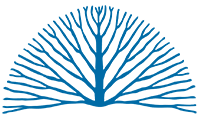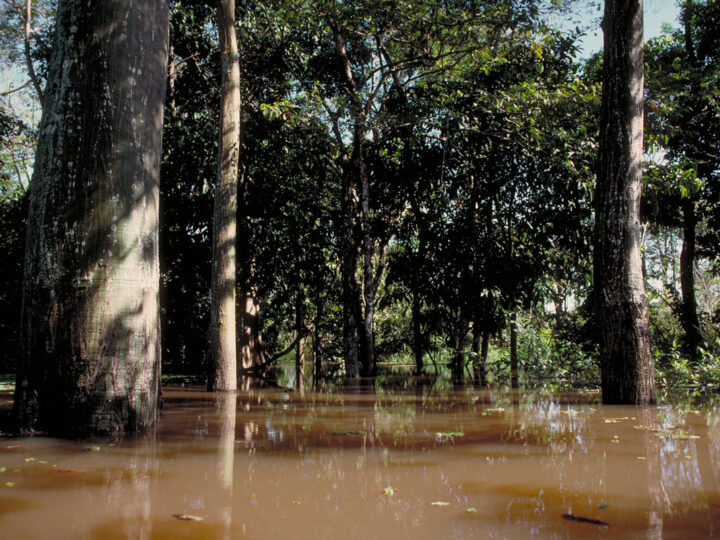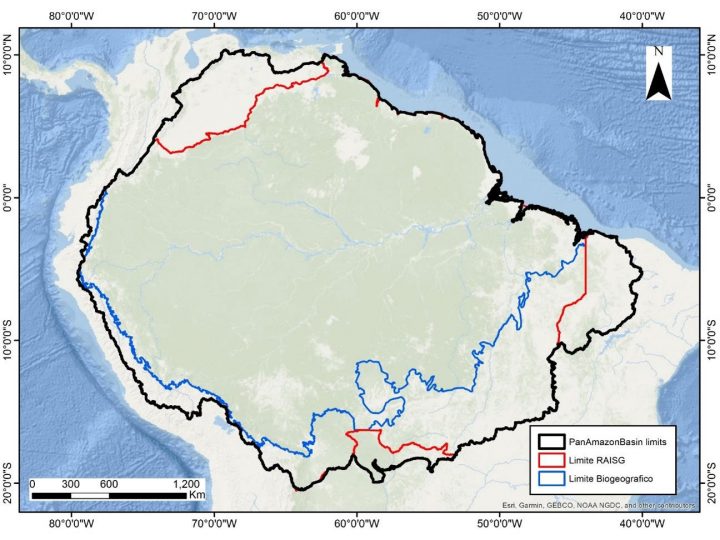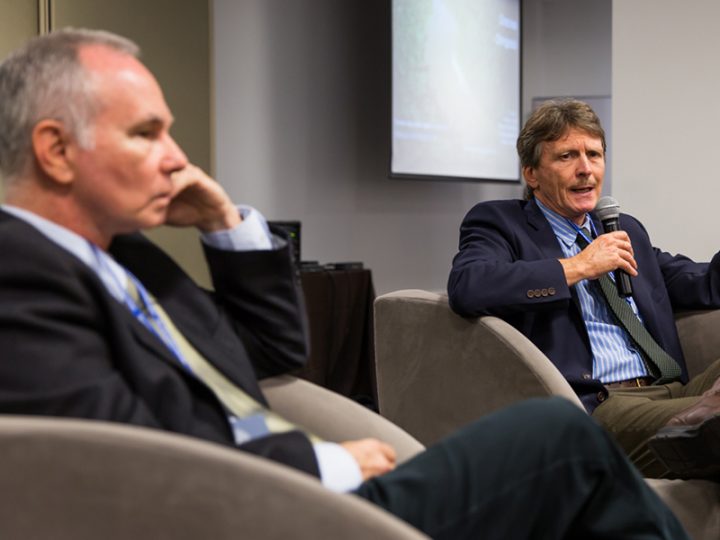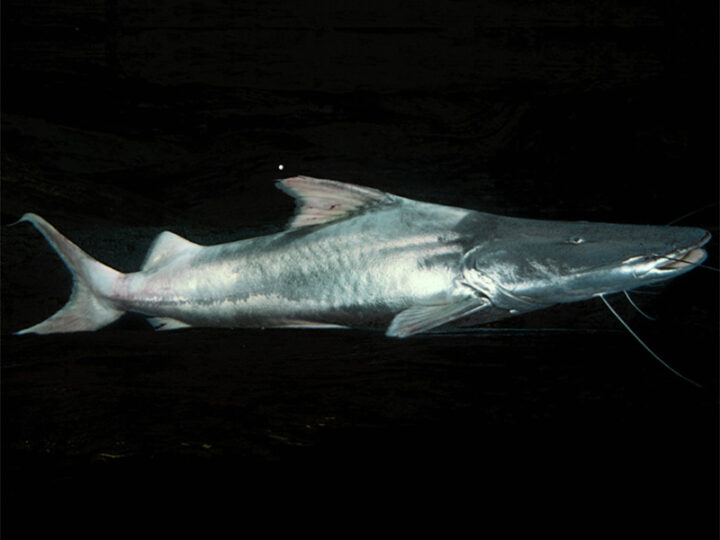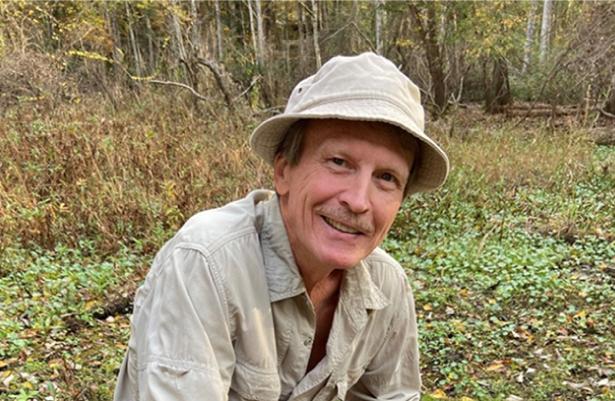

Said Cristián Samper, President and CEO of WCS, who will be speaking at the virtual event: “At WCS, we are extremely proud and honored to have Michael as a colleague and congratulate him on this well-deserved award. His passion and deep knowledge of the key role of fish in this freshwater ecosystem have transformed the way we view the Amazon and highlights the need to manage it across countries as a system.”
(NEW YORK- September 9, 2020) — Dr. Michael Goulding, senior aquatic scientist for the Wildlife Conservation Society (WCS), has received the 2020 Parker/Gentry Award, from The Field Museum based in Chicago, honoring his 40 years-plus of transformative work in the Amazon basin.
This annual award, selected by a committee of Field Museum scientists, distinguishes conservationists whose work has made a significant impact on preserving the natural world and whose methods should serve as a model. In this sense, the award recognizes Dr. Goulding’s commitment to a holistic approach to conservation, one that includes the diverse sets of peoples that stand to gain from conservation and takes into account the social, environmental, and institutional factors that affect the basin.
The award will be given to Dr. Goulding at a virtual event today, Wednesday, Sept. 9. All can join the event by pre-registering. To register, email ewoodward@fieldmuseum.org with the subject line “Parker/Gentry Award Registration.” The event will be 4pm CDT.
Said Cristián Samper, President and CEO of WCS: “At WCS, we are extremely proud and honored to have Michael as a colleague and congratulate him on this well-deserved award. His passion and deep knowledge of the key role of fish in this freshwater ecosystem have transformed the way we view the Amazon and highlights the need to manage it across countries as a system.”
Dr. Goulding received his doctorate degree at the University of California – Los Angeles (UCLA) in 1978 where he studied the fishes of the Madeira river basin. This work, set on the Amazon’s largest tributary, would become the foundation for his life’s research, which would take him to nearly all the major river basins in the Amazon. Some of his significant scientific achievements include leadership in: the first large-scale study of the Rio Negro in Brazil, the world’s largest blackwater river, previously thought of as biodiversity-poor until this documentation of its unique species; rigorous results in the Inambari river basin in southeastern Peru that were critical for the improvement of the country’s licensing standards for hydroelectric dams; the discovery of dozens of new fish species, including 10 species named after him; and the development of the Atlas of the Amazon, a comprehensive publication by the Smithsonian with more than 150 color maps and nearly 300 photographs depicting the basin’s diversity in life and processes.
Importantly, Dr. Goulding has been an integral part of the conservation community in the basin, forming teams and inspiring many successful scientists from the countries in which he has worked, and working at local institutions, such as the Instituto Nacional de Pesquisa da Amazônia (INPA)and the Museu Goeldi in Belém, both in Brazil. His work highlights the importance of fish to local human populations, showing how different peoples earn their livelihoods from fisheries, and adamantly defending the freshwater fish as a primary source of protein, a cultural symbol, and the key to food security in the basin. As such, connecting people to the conservation of the basin is a crucial part of Dr. Goulding’s approach, and this passion is exemplified by his commitment to accessible science communication outside of the peer-reviewed process: He has participated in an exhibit at the Shedd Aquarium of Chicago on Amazon river forests and biodiversity, and lead projects for platforms such as the BBC, National Geographic, ABC, and IMAX.
Today, as part of WCS, Dr. Goulding leads several multi-institutional projects, including the Amazon Waters Initiative. This initiative is founded on a key message of Dr. Goulding’s research—for a successful conservation of the Amazon, both rivers and forests, it must be seen from the perspective of its waters, its wetlands, and its wildlife. The Amazon requires trans-national and multi-institutional cooperation, moving beyond borders and connecting Amazonian residents for a one basin approach. One of the initiative’s scientific questions center on the migration of large catfish, which use the estuary as their nursery but migrate across the Amazon to spawn in or near the Andes—at once one of the most important sources of protein for Amazonian peoples, and the manifestation of the initiative’s ethos: What occurs at one end of the Amazon impacts the other.
For more information on the award, please visit: https://www.fieldmuse
###
WCS (Wildlife Conservation Society)
MISSION: WCS saves wildlife and wild places worldwide through science, conservation action, education, and inspiring people to value nature. To achieve our mission, WCS, based at the Bronx Zoo, harnesses the power of its Global Conservation Program in nearly 60 nations and in all the world’s oceans and its five wildlife parks in New York City, visited by 4 million people annually. WCS combines its expertise in the field, zoos, and aquarium to achieve its conservation mission.
